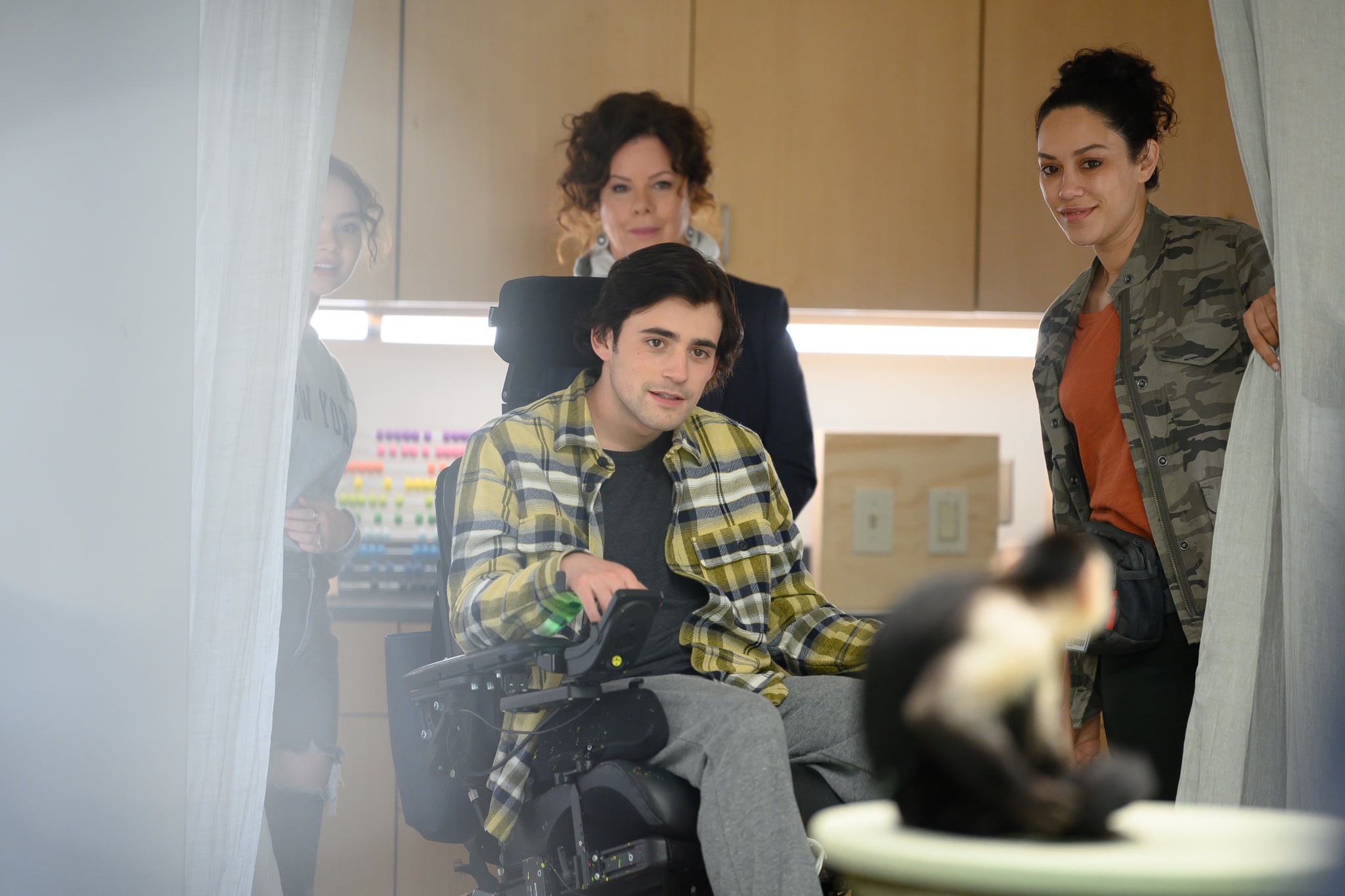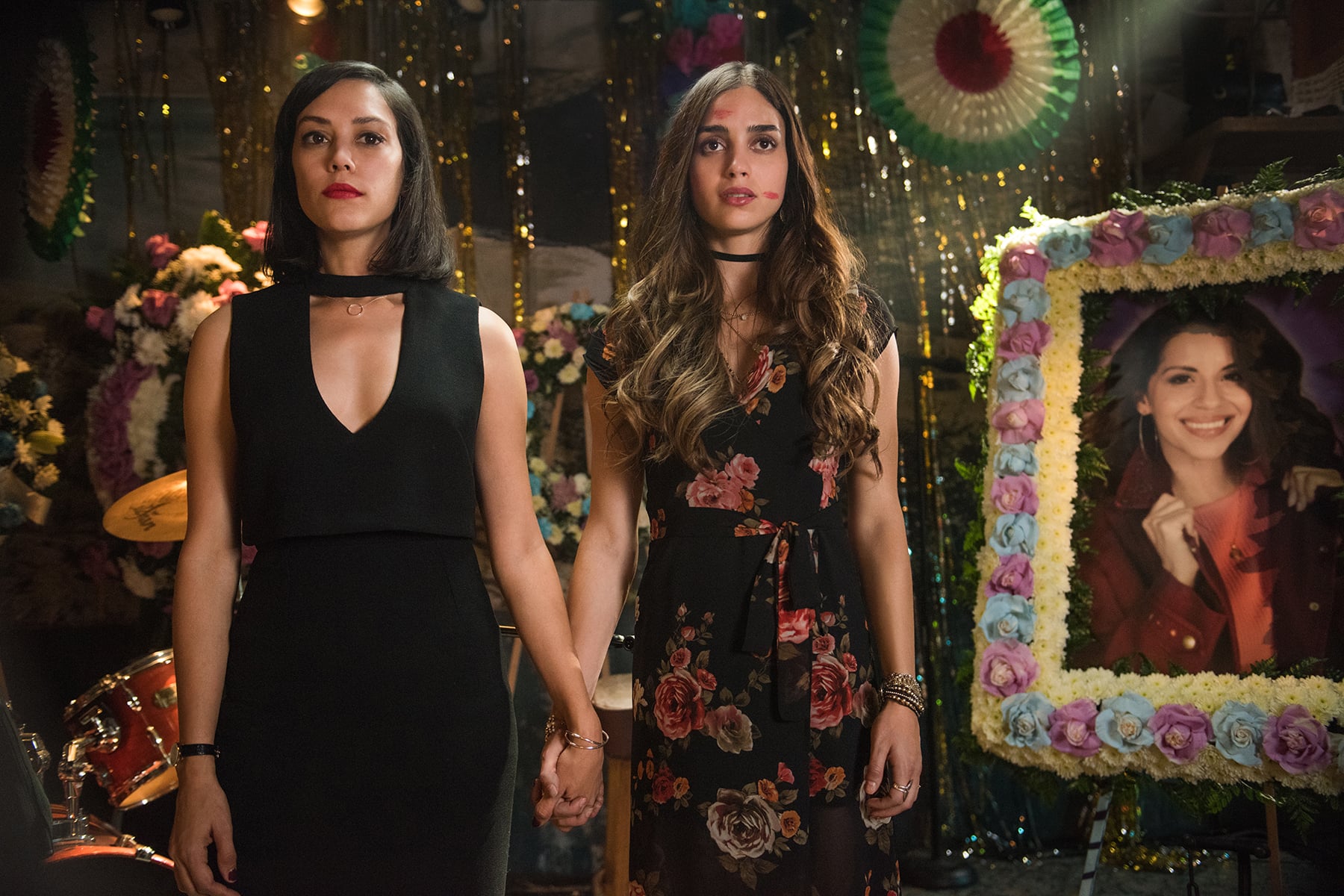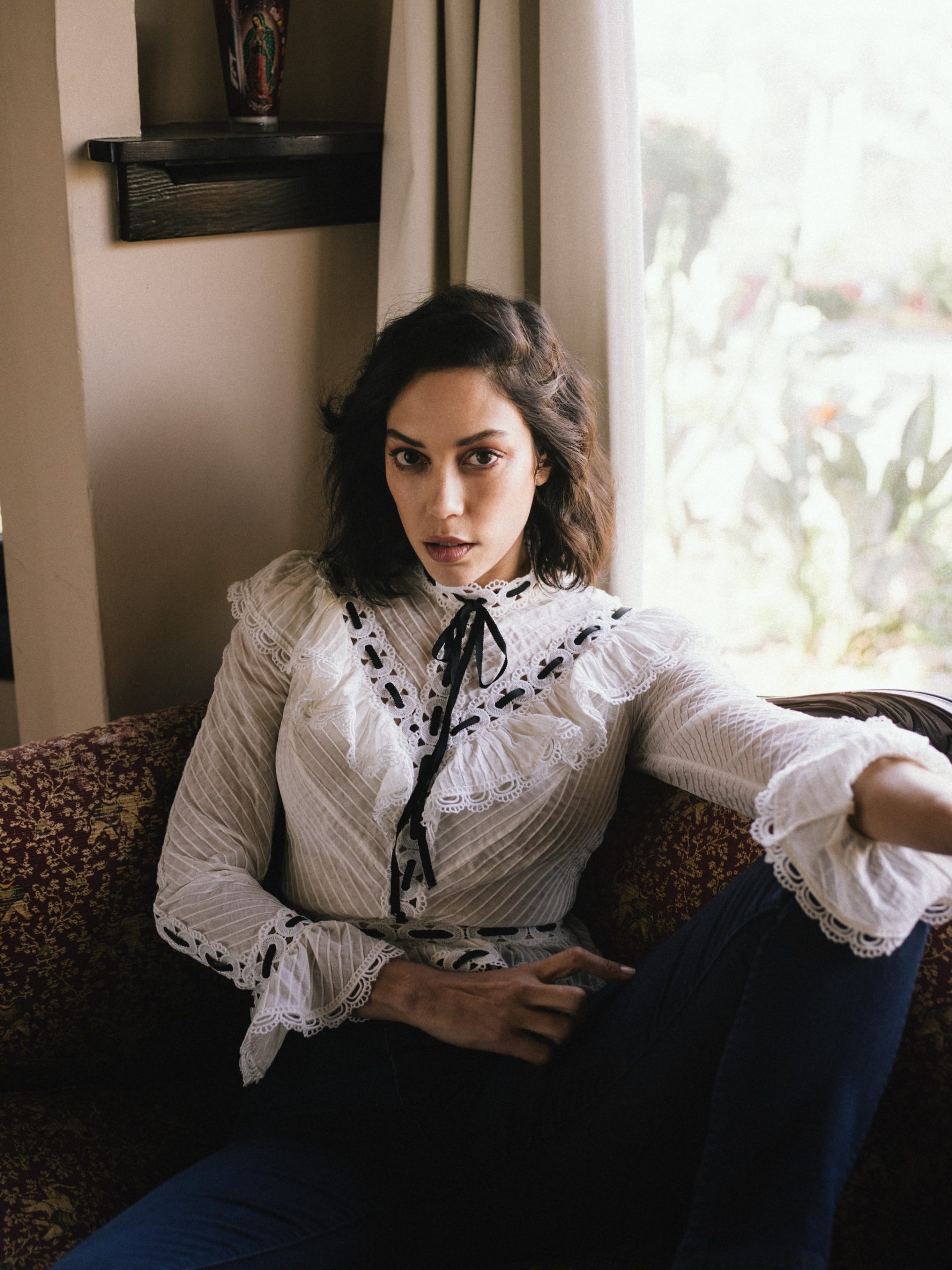Image Source: Shane McCauley
One of the things that contributes to grief being so difficult to overcome is the learning that comes with it. Clinical psychologist Mary-Frances O’Connor shared with NPR that “grieving is a form of learning — one that teaches us how to be in the world without someone we love in it.” It is that heartbreaking and life-altering feeling that drove Mishel Prada to take time off shortly after her mother died last year. After weeks of feeling lost, the actress decided to give herself the time she needed to mourn this major loss and figure out who she is. It brought her healing and helped her channel roles with so much more understanding, delicacy, and depth that you almost immediately notice a change. Prada isn’t the same woman she was before. She also isn’t the same actress. There’s a fire in her that was always there but is finally ready to let itself be fully seen.
Prada’s mother passed away weeks before she was scheduled to film “Gigi & Nate,” which hits theaters on Sept. 2. The Puerto Rican and Dominican actress, who was born and raised in Miami, landed her first major breakout role playing Emma alongside Melissa Barrera in the STARZ series “Vida,” which ran for three seasons between 2018 and 2020. Fast-forward to summer 2021, while Prada was finally finding herself at a place where roles were being pitched to her left and right, the hardest loss happened. It was time for a major reset.

Image Source: Anne Marie Fox

Image Source: Everett Collection
“I even took a break off social media. I just wanted to hide. I didn’t want to be around anybody after losing my mom, [who was] a big part of [my] motivation and being able to take care of us. Her. My family,” Prada tells POPSUGAR over a phone interview. “You know, I didn’t grow up with any money. And with her gone, it just felt like the world had opened and I had fallen into this hole and everything just felt gray and coarse.”
“I think there’s a sense of identity we as Latinx people find in our families, and [with] my mom being the matriarch of our family, it was a very hard loss to explore.”
The actress explains that she started to question everything, including if she still wanted to act. “I think there’s a sense of identity we as Latinx people find in our families, and [with] my mom being the matriarch of our family, it was a very hard loss to explore,” Prada says. “Because it wasn’t just a loss of a mother, but it was the loss of a piece of my identity. In a lot of ways, I was like, ‘Was she the most Latina part about me?’ And now she’s gone. And really wanting to rediscover who I am. Because she’s the one that immigrated [here], and what I connected to as a Latina woman came from my relationship with her. That being gone just surprisingly and suddenly, there was a lot of restructuring. Like OK, what are we doing now?”
Prada started filming “Gigi & Nate” while still in the very early stages of her grieving period. The monumental loss consumed every inch of her being, and Prada struggled to act in the only way she knew how — from her body. “I think I act so much from my body. I check in and bring it out, and it was the first time I couldn’t feel my body,” Prada explains. “For me, a lot of times, especially before I go into scenes, I reach in and take a moment. I reach into what is in my body — whatever I’m feeling.”
She explains how her grief made it difficult for her to feel and connect with her body in the way it used to be able to. It forced her to rely on other skills while figuring out how to evolve her acting process. Prada took her healing with her on set. She sported a little neck tattoo with her mother’s initials and even wore her mom’s earrings in certain scenes. They were all little steps to help her connect with her character, Carolyn, in a way that brought true depth.
“There are these little things about her, and you realize she’s also gone through an evolution of life, and now she’s been able to find what it is that she needs to go and rescue these animals, in a way that maybe she had hoped she had been rescued at some point,” Prada explains of her character. “And take that and create this Jurassic Park of a rehabilitated animals [facility] and placing them together because I think that those that know pain know they don’t want people to feel that. So really taking that backstory to be able to then really be passionate about it.”
Prada shares that grief ultimately taught her to recommit to the things she really cares about. Connecting with other Latinas in the industry is one of them. “So Eva Longoria did a rom-com Christmas movie called ‘Let’s Get Married,’ and they were like, ‘We’d really love for you to be a part of this,’ and that was the first project I did when I decided to come back,” she says. “And at first, I was like, I don’t know if I’m ready. I’ve just been hiding. All I wanted to do was hide — I can’t even tell you. I didn’t want people to see me this upset and this hurt. And this incapable. When people were like, ‘You’re so strong,’ I felt like, ‘But I’m not, and maybe I don’t want to be.’ Really deciding, ‘You know what? Let me do something that’s a little bit of comedy. Something that’s light. And really get to support another Latina producing and creating great things.'”
“I think I’ve gone on a quest to figure out who am I. Yes, I’m an actor. And I’m my mom’s daughter. And I’m my sister’s sister and I’m all those things, but who am I without those things?”
This was during August 2021. While there were many moments where Prada would find herself crying in her trailer, there were also many moments where she was able to find the humor in it all. She believes humor is something generations of Latinxs have used to get through the hardest of times. “I think a lot of us find comedy in our moments of despair. I think that’s why so many of us are funny,” she says. In each film and each project she tackled, she brought out a different side of herself, but beneath it all lies grief. “I think I’ve gone on a quest to figure out who am I. Yes, I’m an actor. And I’m my mom’s daughter. And I’m my sister’s sister and I’m all those things, but who am I without those things?” she asks. “And I know that sounds so woo-woo, but it was really powerful.”
Prada plays KD in the John Wick TV miniseries “The Continental.” She believes that in many ways, her mom prepared her for this role. Not only was she a natural at the stunts because of the self-defense classes her mom enrolled her in at the YMCA growing up, but she was also able to connect to the material. “I watched it, and there was a moment when I realized the world had felt so violent toward me and I was in that really sad space and was like, ‘What would it look like if I could just embody this feeling?’ And I think that’s a really cool thing we get to do as actors,” she says. “We don’t have to play it out in our lives, but we can play it out on screen.”
The role gave Prada hope that things in the industry are in fact changing. “What’s cool is that character wasn’t originally written for a Latina,” she says. “This is a huge testament to the director and the showrunner and the writers. They were so open to even specific things, like where it’s her apartment and I’m like, ‘She needs a cafetero on her stove.’ Or like even in a scene before she picks up the phone, she’s eating some saltine crackers with butter on them like it’s a legit meal.”
For the series, which is set in the ’70s, Prada brought photos of her mother back in the ’70s for fuerza and inspiration. She showed the photos to help costume design develop her character’s look. She even channeled her mother when working on her character’s NYC accent. “Being able to feel like I’ve sat with the pain and sat with the grief, very few of us ever get a chance to do that. Because if you have kids, you have to be a mom. If you have a job that doesn’t give you the opportunity to use your emotional state, you kind of have to keep going,” Prada says. “I think that was a really sobering thing for me, just realizing, oh wow, so much of my family lineage and the Latinas in my family have had to survive. And what does it look like to thrive? And giving myself the luxury to take time off and turn down really good projects. I was like, ‘I’m kind of messed up right now. I’m grieving in a really intense way.’ And really giving ourselves that ability to do that and realizing that maybe even that is a really evolutionary moment. Like I get to do that.”
After shooting, Prada was able to take herself on a European vacation in Italy. She pauses to express that she is the first in her family who has ever been able to do anything like that. In fact, many members of her family have never even left Miami. The entire time she was there, she just thought of her mother and how she was never able to travel to Europe. “My heart kept aching, wishing that she was with me and that I finally made it to this point where I can bring her with me. And that’s wild,” she says. “But there was a moment that even when I wanted to crumble and just melt away and just give everything up because the world felt so coarse and dark, realizing that my mom and grandmother and my bisabuela, they all worked toward getting me to this point. And not only that, but the women in my industry as well. The women of color and Latinas that came before me also worked to get me to this point. So because [of them], I’m able to just enjoy that just for the sake of enjoying it and giving myself that was an act of revolution and defiance.”
For Prada, it doesn’t mean in those moments she wasn’t still experiencing some degree of grief. It just means that she was also able to reach in and feel joy and gratitude as well, along with the hope that one day she’ll contribute toward making it even just a tad bit easier for the next generation of Latina women who come after her. “I just want people to know that things are possible. I just remember there being a point where people were telling me, ‘These are the facts, and this is why it’s hard,'” she says. “I didn’t know anybody. I didn’t come from anything that was interesting and at that point, to people that were able to hire me. But I just remember one night sitting there looking at the sky. I was living in LA, and it was a very kind of heavy night for me. And looking up and saying, ‘You know what, if I can do it, then I feel like other people can.'” Prada explains that she felt at that moment like she had nothing to lose. “I was just like, if I can get to the other side, then I can open the backdoor and tell other people to come in.”
And just like that, Prada realized that her purpose is so much greater than acting itself. It’s about diving deep enough into a role where she can tell a story that can really connect and have an impact on someone. It’s about changing the Hollywood game and bringing more and more of our stories to life in film and television. So little by little, our stories begin to take up just as much space as the stories we’ve been conditioned into believing were the only ones that mattered.

